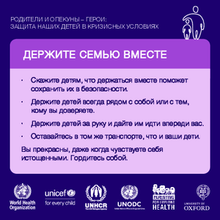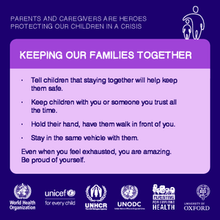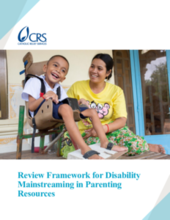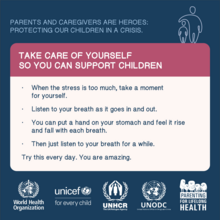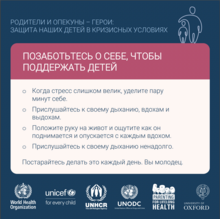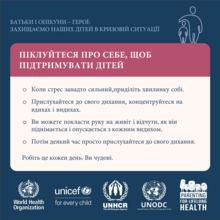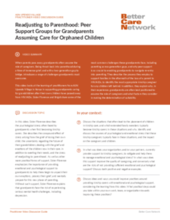Displaying 61 - 70 of 947
This new set of evidence-based parenting tips were developed in response to the war in Ukraine and focus on the prevention of child trafficking and child sexual violence.
This study examines the perceptions of 145 incarcerated mothers of minor children in a large Midwestern jail to understand the correlation between where their children are living during their incarceration and the mothers’ feelings about these placements and relationships with their children. Mothers were most satisfied if children lived with maternal grandparents, and least satisfied if children were in foster care. Women with higher scores for the relationship with close relatives, those having contact with their child(ren) while incarcerated, and mothers with no children in foster care reported feeling better about these placements. The findings highlight the importance of women maintaining contact with their children and their children’s caretakers while incarcerated.
This Framework for Disability Mainstreaming in Parenting Resources is a tool to help organizations and practitioners to review existing parenting resources in terms of information and content gaps, limitations of instructional guidance, and at-home activities. The aim of the framework is to ensure parenting resources are inclusive of the needs of parents of children with disabilities ages 0 to 17 years.
In the brochure, you will find the basic rules of safety, hygiene, nutrition, vaccination, psychological support - the answers to the questions that are currently most relevant are collected in one material prepared by UNICEF with the support of the United States Agency for International Development (USAID).
Responding to the crisis in Ukraine, Oxford University parenting experts together with their international colleagues, produced this easy-to-use guidance for families and other organisations on supporting children in the current emergency. The guide is based on evidence-based research.
Реагируя на кризис в Украине, эксперты по воспитанию детей Оксфордского университета вместе со своими международными коллегами подготовили это простое в использовании руководство для семей и других организаций по поддержке детей в нынешней чрезвычайной ситуации. Руководство основано на доказательных исследованиях.
Реагуючи на кризу в Україні, експерти Оксфордського університету з питань батьківства разом зі своїми міжнародними колегами підготували цей простий у використанні посібник для сімей та інших організацій щодо підтримки дітей у нинішній надзвичайній ситуації. Посібник заснований на доказових дослідженнях.
There are limited studies which investigate the perceived needs and wellbeing of parents caring for their children with disability from culturally and linguistically diverse communities. This qualitative study uniquely explored the experiences and cultural factors of Vietnamese parents caring for children with a disability in multicultural Australia.
This video summary accompanies the Readjusting to Parenthood: Peer Support Groups for Grandparents Assuming Care for Orphaned Children (Upendo Village, Kenya) practitioner learning video which is part of the Kenya Practitioner Learning Video Series.

